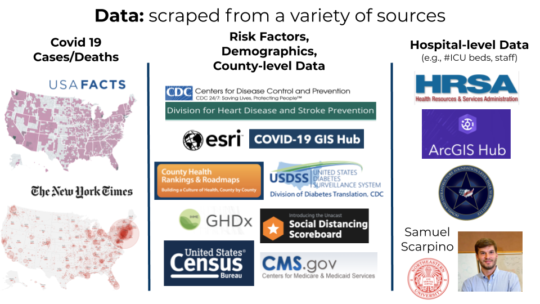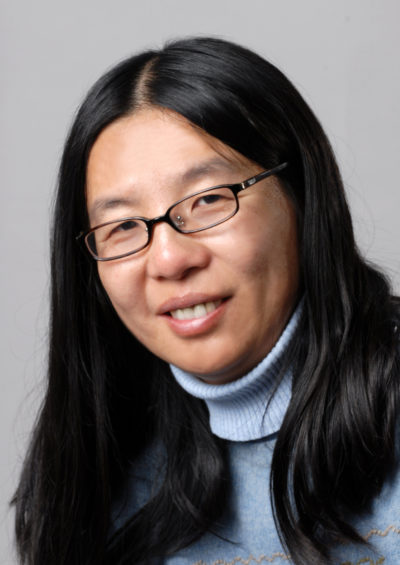Getting the right equipment to the right people - Berkeley Engineering (original) (raw)
Professor Bin Yu and her team are developing models to connect hospitals with needed supplies
Hospitals are suffering from an acute shortage of emergency medical supplies, including masks, gowns, gloves and ventilators. However, the medical industry is struggling to determine the places that need them the most.
Bin Yu, a professor of statistics and of electrical engineering and computer sciences, is working with nonprofit organization Response4Life to connect suppliers with hospitals in need.

Sources of data for tracking coronavirus impact. (Image courtesy Bin Yu)
Yu, who is also a principal investigator in the Center for Computational Biology, has been leading a team of 11 students and postdocs to collect information about ventilator shortages and infections from federal, state and local health agencies, as well as news media reports, to craft meaningful data sets. She is also tapping her own network of sources including colleagues at Berkeley, UCSF, Stanford and Northeastern.
“It’s a lot of messy data to scrape, clean and validate,” said Yu, who has been working nonstop on the project. “Things happen so fast that we have to think and adapt rapidly as a team — we are not in the usual mode of research.”
Industry officials say the need for reliable data is critical.
“I am writing to urge [the federal government] to provide the strategic direction needed to more effectively target [medical] supplies based on the greatest need,” Matthew Rowan, CEO of the Heath Industry Distributors Association, recently wrote in a letter to government officials. “The private sector is not in a position to make these judgments.”
Bin Yu
Yu and her team have devised simple and transparent algorithms to predict death counts at the county level. They will also factor in population density, transportation data and the ability of people to move away from hot spots such as New York City. Her students are also leading a team of volunteers from across the country to gather data from state and local news outlets to provide holistic feedback to their algorithms.
Yu wants to develop a “severity index” for each hospital to help suppliers make choices about where to send their supplies. Using these algorithms, Response4Life is building a Salesforce platform to connect suppliers and hospitals.
“Our only goal is to save the most lives. To do that, we have to know where the greatest need for supplies is,” said Shakeel Dalal, Response4Life’s chief of staff. “Professor Yu and her group have truly lifted heaven and earth to make amazing scientific strides in a short period of time.”
Yu said the project is extremely challenging. She spends a great deal of time trying to understand how the complex healthcare supply system works. Plus, the COVID-19 situation keeps changing.
“We have to keep revising our approach with feedback from reality,” she said. “Everything is so dynamic.”
Yu stresses a solution will ultimately depend on statistics, critical thinking, epidemiology knowledge and “good common sense.”
